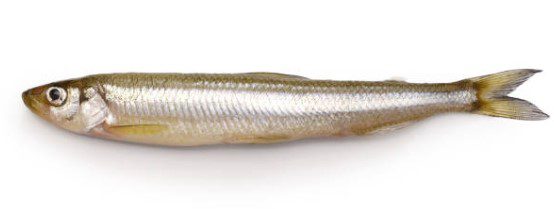

Dogs can eat smelt as long as it is cooked. Raw smelt should be avoided as it contains thiaminase, which can disrupt the thyroid and cause thiamine deficiency. Raw smelt can also contain parasites.
Smelt is a good source of omega-3 fatty acids, calcium, phosphorus, and vitamins B and D, which all help keep dogs healthy and provide extra energy.
Smelt has a low mercury content but raw smelt should be avoided.
Clean smelt thoroughly before cooking and serve occasionally in moderation. If it is to be served whole, it should only be given to large dogs. Small dogs should have the smelt cut into small, bite-sized pieces.
Dogs can enjoy smelt as part of their diet as long as it is cooked properly, as raw smelt carries the risk of containing thiaminase that can disrupt the functioning of the thyroid or thiamine deficiency. Other common names for this fish include capelin, freshwater smelt, and Rainbow Smelt. This fish is native to the coasts of the northern Atlantic and Pacific Oceans and is commonly eaten in Japan. Smelt is a fantastic source of omega-3 fatty acids, calcium, phosphorus, and vitamins B and D which assist in keeping your pup healthy and boost their energy levels. However, it is important to note that raw smelt should be avoided as it carries a low mercury content. When serving your pup smelt, make sure the fish is cleaned thoroughly before cooking things such as boiling or baking it. It can occasionally be served whole, but only to large dogs, while small pups should have it cut into bite-sized pieces.
Are there alternative sources of omega-3 fatty acids for dogs? Yes, other sources of omega-3 fatty acid for dogs include herring, salmon, anchovies, and sardines. Additionally, you can also opt for plant-based sources such as flax seed, walnuts, chia seeds, and hemp.
Has your pup ever had smelt or any other seafood before? Share your experience with us in the comments section below!
Sending lots of cuddles to your four-legged friend—we hope your pup has a delicious and nutritious meal!